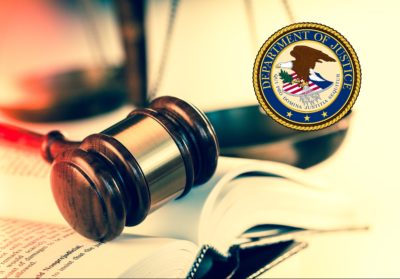January 8, 2020
By: Jason D. Lazarus, J.D., LL.M., MSCC
The Department of Justice (DOJ) is serious about and intent on enforcement of the Medicare Secondary Payer Act when it comes to conditional payments. There are now numerous examples of these actions being taken by the DOJ. In this instance, the case against a Philadelphia-based law firm was handled by Assistant United States Attorney Michael S. Macko, acting upon a referral from Eric S. Wolfish, Assistant Regional Counsel for the U.S. Department of Health and Human Services, Office of the General Counsel, Region III. In a recent release, U.S. Attorney William M. McSwain announced “that a Philadelphia-based personal injury law firm, Simon & Simon, P.C., has entered into a settlement agreement with the United States to resolve allegations that it failed to reimburse the United States for certain Medicare payments.”
According to a press release issued by McSwain, “[t]he government alleged that at various points between 2014 and 2019, Medicare made conditional payments to healthcare providers to satisfy medical bills of eight of the firm’s clients. Although Medicare demanded that Simon & Simon repay the resulting Medicare debts, the firm allegedly failed to do so.” As part of the settlement, like in other cases, the firm agreed to pay $6,604.59 to satisfy the debt owed to Medicare. In addition, the firm agreed to “(1) name a person responsible for paying Medicare secondary payer debts; (2) train the employee to ensure that the firm pays these debts on a timely basis; (3) review any additional outstanding debts to ensure compliance; and (4) provide written certifications of compliance.” The firm also acknowledged that any future “failure to submit timely repayment of Medicare secondary payer debt may result in liability for the wrongful retention of a government overpayment under the False Claims Act.”
According to the release:
“The government’s investigation arose under the Social Security Act’s Medicare Secondary Payer provisions. This law authorizes Medicare, as a secondary payer, to make conditional payments for medical items or services under certain circumstances. When an injured person receives a settlement or judgment, Medicare regulations require entities who receive the settlement or judgment proceeds, such as the injured person’s attorney, to repay Medicare within 60 days for its conditional payments. If Medicare does not receive timely repayment, these regulations permit the government to recover the conditional payments from the injured person’s attorney and anyone else who received the settlement or judgment proceeds.”
No law firm wants to have the DOJ investigating them for failing to reimburse conditional payments. According to the press release by the DOJ, “[t]his settlement agreement should remind personal injury lawyers and others of their obligation to reimburse Medicare when they receive settlement or judgment proceeds for their clients,” said U.S. Attorney McSwain. “Lawyers need to set a good example and follow the rules of the road for Medicare reimbursement. If they don’t, we will move aggressively to recover the money for taxpayers.” Given the foregoing, in today’s complicated regulatory landscape, a comprehensive plan for Medicare compliance has become vitally important to personal injury practices. Lawyers assisting Medicare beneficiaries are personally exposed to damages and malpractice risks daily when they handle or resolve cases for Medicare beneficiaries. Synergy can be your resource for total Medicare compliance and help you avoid the liability illustrated by these types of government actions. For a deeper dive, you can view the following 15-minute video presentation on this subject at: https://youtu.be/2EH7QWjj2zw.

